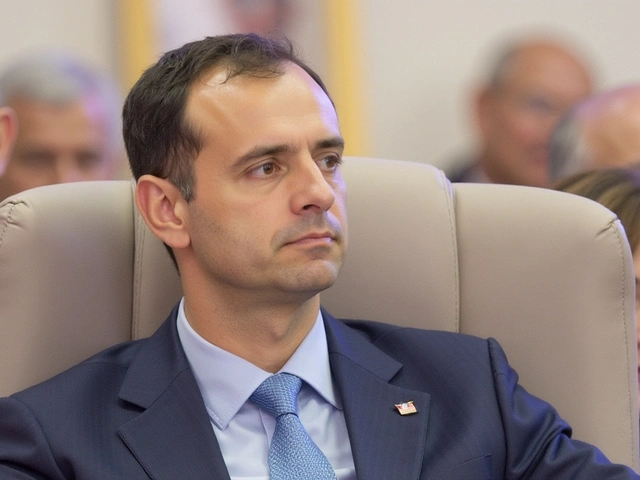Aliko Dangote's Ambitious Plans for Nigeria's Mega Oil Refinery
Nigerian billionaire Aliko Dangote, renowned for his extensive business empire, has made a bold proclamation about his latest venture: a colossal oil refinery in Lagos. According to Dangote, the refinery, with an investment worth a staggering $20 billion, is to operate at 85% capacity by the end of the year. It's an ambitious target, especially considering the numerous hurdles it has encountered since commencing operations earlier this year.
Initially touted as a game-changer for Nigeria's energy landscape, the refinery has faced significant challenges in securing domestic supplies of crude oil. Only five crude cargoes have been received from the Nigerian National Petroleum Corporation (NNPC), a serious shortfall compared to the expected fifteen. This shortfall has been a significant roadblock in achieving the refinery's operational targets.
Mitigating Domestic Supply Issues
In response to the supply constraints, Dangote has demonstrated adaptability and resilience. To bridge the crude oil gap, the refinery has turned to international markets, sourcing crude from countries as far afield as Brazil and the United States. This strategy, though costly and logistically complex, has kept the refinery's operations buoyant and underscores Dangote’s commitment to maintaining the plant's momentum. The decision to import crude is not without its challenges, especially considering the logistics and additional costs entailed in transporting crude oil from these distant regions to Lagos.
Besides securing adequate crude supplies, the refinery has had to confront concerns about the quality of its output. Specifically, environmental and industry watchdogs raised alarms over the high sulphur content in the refinery's gasoil. High sulphur levels in gasoil can have profound environmental repercussions and can adversely affect air quality. Dangote has addressed these concerns head-on, revealing that the sulphur content has been significantly reduced and further improvements are in the pipeline. He assured stakeholders that the refinery is fully committed to adhering to international environmental standards and delivering high-quality products.
Production Goals and Economic Impact
As of now, the refinery aims to produce a dazzling 550,000 barrels per day by the end of July, approximating 85% of its full capacity. This production level, if achieved, can exceedingly diminish Nigeria's dependence on imported refined petroleum products. For years, Nigeria, despite being one of the world's leading crude oil producers, has lagged in refining capacity, resulting in a heavy reliance on imported petroleum products. Dangote's refinery, by producing such substantial volumes, has the potential to transform Nigeria's petroleum refining landscape.
A Vision for the Future
The scope and scale of Dangote's refinery project are monumental. Once fully operational, it is expected to become Africa’s largest oil refinery and the world's biggest single-train facility. Beyond meeting Nigeria’s energy needs, the refinery holds the promise of becoming a major supplier of refined products across the African continent and beyond. Analysts believe that its operational success will have profound positive ripple effects on Nigeria’s economy, spurring growth, creating jobs, and potentially lowering domestic fuel prices.
Despite the current challenges, Dangote's optimism and steadfastness provide a beacon of hope. The refinery is not just an industrial project but also a symbol of ambition and resilience. As it navigates the complexities of the global oil market and domestic challenges, its progress will be keenly watched by industry stakeholders, policymakers, and the Nigerian public.
In the broader context, Dangote's venture exemplifies the potent blend of entrepreneurship and visionary investment. It showcases the critical role the private sector can play in addressing infrastructure deficits and driving national development. As the year progresses, the world will watch closely to see if the refinery meets its targets and delivers on its promise to revolutionize Nigeria's energy sector.







13 Comments
Great insight! The Dangote refinery could indeed reshape Nigeria’s fuel market. By pulling in crude from Brazil and the US, they’re hedging against local supply hiccups 😊. If they hit that 85% capacity, we might finally see a dip in pump prices. Also, the reduced sulfur levels are a win for the environment. Let’s keep an eye on the production numbers!
Oh, brilliant, because nothing screams “well‑planned” like scrambling for foreign crude while bragging about “ambitious” targets. The drama of a $20 billion refinery chasing cargoes across the Atlantic is truly... exhilarating. One can only imagine the boardroom applause when they finally squeak out 85% capacity. 🙄
Sounds like a massive vanity project that’s probably running on fumes.
The ambition of Dangote’s refinery is a textbook case of hubris dressed in steel and concrete. While the headline touts an 85 % capacity target, the underlying logistics betray a fragile supply chain. Importing crude from Brazil and the United States adds layers of geopolitical risk that few seem to acknowledge. Moreover, the shortfall in domestic cargoes underscores a systemic failure of the NNPC to honour its obligations. One could argue that this project reflects a larger philosophical dilemma: can private capital compensate for public sector inadequacy? The answer, however, lies not just in balance sheets but in the environmental externalities of the operation. High sulfur gasoil, even if mitigated, signals an incomplete transition toward cleaner energy. The refinery’s capacity to produce 550,000 barrels per day is impressive, yet capacity without demand is a hollow victory. Nigeria’s consumption patterns remain heavily skewed toward imported products, a paradox that the refinery alone cannot resolve. In the grand schema, the refinery acts as a mirror reflecting both the potential and the limitations of African industrialization. The venture also raises questions about labor practices, local content, and the equitable distribution of jobs. If the project truly delivers on price reductions at the pump, the downstream effects could ripple through the entire economy. Conversely, any misstep-be it a supply disruption or a regulatory breach-could erode public trust precipitously. Thus, the refinery stands at a crossroads where technological prowess meets socio‑political responsibility. Only time will reveal whether Dangote’s gamble will be heralded as a triumph of vision or a cautionary tale of overreach.
Frankly, the whole saga is a circus of broken promises; Dangote’s “solution” to the crude shortage is nothing more than a pricey import gimmick that only masks the NNPC’s incompetence. The refinery’s glorified bragging about sulfur cuts feels like a band‑aid on a leaky pipe. If you ask me, this is just a flashy way to shift the blame onto foreign suppliers while the real bottleneck-government mismanagement-remains untouched.
Alas, the tragedy unfolds before our very eyes! A $20 billion colossus, erected with the hopes of a nation, now teeters on the brink of dependency on distant oilfields. One cannot help but feel the weight of destiny pressing upon each barrel that traverses the oceans to Lagos. Yet, in this grand theater of industry, the applause is premature, for the true test lies in the crucible of sustained output.
It’s worth noting that the refinery’s target of 550,000 barrels per day aligns with estimates of domestic demand, which could ease fuel imports if maintained. Monitoring the sulfur reduction metrics will be essential to verify compliance with international standards. Additionally, the project’s impact on local employment could be assessed by looking at the reported job creation numbers in recent quarterly reports. Keeping an eye on these indicators will help gauge the real benefits for the Nigerian economy.
Interesting project but still a long way to go
While many celebrate the refinery as a beacon of progress, one might question whether the focus on sheer output diverts attention from renewable investments that could secure Nigeria’s energy future in a more sustainable manner.
Oh, the sheer audacity of ambition!; the Dangote refinery, towering over Lagos, promises a tide of prosperity; yet beneath that gleaming façade lurk countless challenges-logistical, environmental, political-each demanding relentless vigilance; indeed, if we are to celebrate this marvel, we must also confront the shadows that accompany such monumental endeavors; otherwise, we risk applauding a phantom, a mirage that vanishes when the lights go out!
Yeah, because importing crude is totally a clever long‑term plan.
Look, the sarcasm won’t change the facts: the refinery needs a reliable crude source, and without it, all the hype is meaningless. Let’s cut the jokes and focus on building a robust supply chain, because that’s the only way to turn this venture into real economic gain.
In closing, the Dangote refinery represents both a formidable challenge and a unique opportunity; by steadfastly pursuing operational excellence and adhering to stringent environmental standards, Nigeria can harness this project to stimulate growth, create skilled employment, and set a precedent for large‑scale industrial initiatives across the continent.